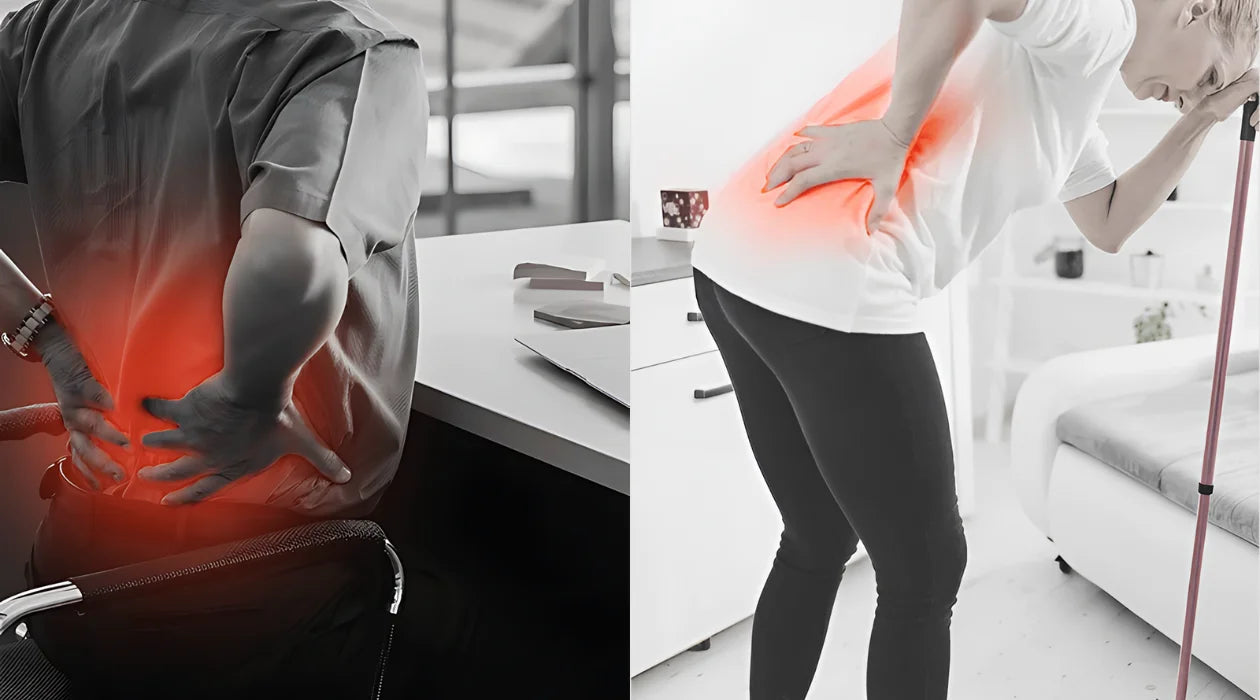In today's fast-paced world, it's easy to ignore the stress that builds up in our bodies. Whether it's from long hours at a desk, physical activity, or the mental stress of everyday life, our bodies can show it in a variety of ways. This article covers some of the signs that indicate your body may need a Massage.
What is Massage?
Massage therapy involves manipulating the body's soft tissues to promote blood flow and relieve muscle tension. Although massage has been around for centuries and various massage methods have been developed, many people are still unaware of its numerous benefits.
Signs You Need a Massage

Massage therapists help reduce swelling and relieve pain by applying targeted pressure to the skin. This increases blood flow and speeds up the healing process. This process can help the body recover after an injury, surgery, or stress.
While some injuries may require surgery, most injuries can heal with post-surgical physical therapy. So how can we tell when we need a massage?
Neck, Shoulder, or Back Pain
Neck and shoulder pain are common complaints among adults, often exacerbated by poor posture, a sedentary lifestyle, and repetitive movements. When muscles in these areas are tight or strained, and stretching or physical therapy exercises don't provide relief, you can try massage. Techniques such as deep tissue massage and Swedish massage can reduce muscle tension and prevent further muscle damage, increase blood flow to the affected area, and improve range of motion.
Did Not Sleep Well
The quality of your sleep can affect your entire day, leading to problems such as poor concentration, mood swings, weakened immunity, and cardiovascular problems. Many people suffer from insomnia or lack of sleep. This is when you can seek a massage to help you fall asleep. Massage improves sleep by increasing serotonin levels and reducing stress hormones. Serotonin is a precursor to melatonin, a hormone that regulates sleep. Regular massage can improve your sleep quality, making it easier for you to fall asleep and maintain a consistent sleep schedule.
You Feel Stressed and Anxious
Anxiety and depression are mental health conditions that affect millions of people worldwide. Massage therapy can be used as a complementary therapy, which releases endorphins in the brain, a natural mood lifter. It also increases dopamine, which helps stabilize your mood. Regular massage can give you a sense of calm, which can help reduce anxiety and depression symptoms and improve mental health.
You Sit At a Desk All-day
People who sit at their desks for long periods of time are prone to soreness, especially when their posture is not correct. In addition, sitting for long periods of time can cause muscle tension and stiff joints. You need to move around regularly to relax tense muscles and improve blood circulation. If you don't have time to exercise, I recommend buying a neck massager or lower back massager to help you improve this situation. You can experience a relaxing massage at any time, even while working in the office and at home.
Athlete
If you are an athlete or fitness enthusiast, you often perform high-intensity training or competitions, which do not use your muscles normally. This may lead to muscle soreness, fatigue, and injury. Many athletes use massage to promote the recovery process. It can increase blood circulation, thereby delivering more oxygen and nutrients to the damaged area and accelerating tissue repair. In addition, massage can reduce muscle tension and inflammation and help remove metabolic waste such as lactic acid, thereby relieving pain and promoting healing.
You Often Have Headaches
Frequent headaches, including tension headaches and migraines, can be very distressing. These headaches are often caused by muscle tension, stress, and poor circulation. If you suffer from frequent headaches or migraines, consider adding massage therapy to your treatment plan. Massage therapy can relieve pain by targeting the tension in the head, neck, and shoulder muscles that cause headaches. Techniques such as craniosacral therapy and trigger point therapy can work well to reduce the frequency and intensity of headaches.
If You Have Circulation Problems
If you have health problems related to poor circulation, such as swelling, numbness, and fatigue, massage therapy may help. Poor circulation often manifests itself as cold hands and feet, muscle cramps, and slow wound healing. Massage improves circulation and boosts metabolism by stimulating blood flow to deliver oxygen and nutrients to cells. Recommended massages include Swedish massage and lymphatic drainage massage.

FAQ
What Toxins Are in Muscle Knots?
Muscle knots don't contain toxins, but they can trap waste products like lactic acid, leading to discomfort. A deep tissue massage can help release these knots, improve circulation, and alleviate the discomfort associated with them.
What is The Ideal Length of a Massage?
The ideal length of massage depends on your specific needs and goals.
For manual massage, a 60-minute massage is usually sufficient for a full-body massage, with enough time to work on major muscle groups and areas of tension. For a more complete and deeper relaxation experience, you will need to spend 90 or even 120 minutes.
For using a massager, the length varies. Usually, a 10-15 minute massage is effective in relieving tension and fatigue in specific areas. For a full body massage, 30 minutes is a better option to relax major muscle groups and relieve stress. Avoid massaging individual areas for too long, usually no more than 20 minutes, to prevent overstimulation of muscles or skin.
When is The Best Time To Get a Massage?
The best time to get a massage depends largely on your lifestyle and schedule.
If you are an early riser, consider scheduling a massage in the morning. A morning massage can boost blood circulation and get you energized to take on the day.
Conversely, an evening massage is ideal for those looking to relax and unwind after a long day. It helps relieve muscle tension and fatigue that has built up throughout the day, promotes relaxation, and helps you fall asleep faster.
Whether you prefer a morning pick-me-up or an evening wind-down, regular massage can improve your overall well-being.
Is Over-massage Harmful?
While there are many benefits to a regular massage, over-massage can be counterproductive. Unless you are dealing with a specific pain or engaging in high-intensity exercise, once a week is usually the maximum recommended frequency. Excessive massage can lead to muscle soreness and fatigue. You can discuss this with your therapist to determine the best frequency.
Which Areas Should Be Avoided During Massage?
Areas that should be avoided or treated with caution during massage include the anterior and posterior triangle of the neck, where major blood vessels and nerves are located; the upper sternal notch and sternum, where the heart and lungs are located; and the armpits, where lymph nodes and blood vessels are located.
Other sensitive areas include the spine, because of the fragility of the vertebrae and spinal cord; the umbilicus, near major organs and blood vessels; the inguinal triangle, where the major blood vessels and nerves of the legs are located; the popliteal fossa, located behind the knee; and the anterior elbow fossa, located on the inside of the elbow.
These areas should be avoided or massaged with gentle surface pressure to prevent injury and ensure safety during the massage.
What Conditions Make Massage Inappropriate?
These conditions include fever, as it may signal an underlying infection; infectious diseases to prevent transmission; blood clots, due to the risk of dislodging; and specific pregnancy complications. Individuals with liver or kidney disease, cancer, severe inflammation, or uncontrolled high blood pressure should also avoid massage or seek medical advice prior to massage. Always consult a medical professional to ensure that massage is safe for your health.
Conclusion
Massage therapy can relieve pain, reduce stress, improve sleep, relieve anxiety, and relieve headaches. Regular massage has many benefits and is a valuable investment in your health. Even if you have no symptoms, you can enjoy relaxing your muscles. Visit SKG to purchase a massager and enjoy your leisure time at home.




